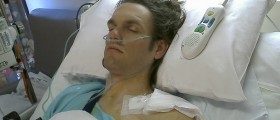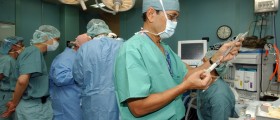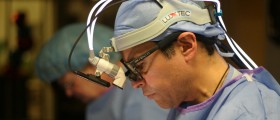
General Anesthesia
General anesthesia is basically druginduced unconsciousness for the purpose of performing some medical or surgicalprocedure. Anesthetic drugs enable complete loss of sensations in the body, sothe person who needs certain painful intervention doesn’t feel any pain ortrouble during the procedure.
Although anesthetic drugs are usedduring the surgery or procedure, general anesthesia is more than that. It alsoincludes pre-anesthetic and post-operative assessment of the patients, preparingthem for the surgery and relieving the pain or discomfort felt after theprocedure.
Side effects of general anesthesiaare higher than of local or regional anesthesia, simply because it involvescomplete human body. Most of these effects are minor and rare in healthypeople, so the doctors are able to manage them very easily. Appearance of sideeffects is known to depend on several factors, such as: the type of anestheticdrugs and performed surgery, duration of the procedure, individual tolerance toapplied anesthetic drugs and some other factors.
People don’t have to experience allside effects after the general anesthesia. Some patients may develop just one ortwo mild symptoms, while others may have to deal with a range of adverseeffects. As already explained, healthy people may have no complications afterthe use of general anesthesia. However, some patients have been reported tosuffer from nerve damage, aspiration, suffocation, organ failure or even deathafter surgeries performed under general anesthesia.
Statistics show that these severecomplications are rare. Only 3 to 5 from a million of people die because ofgeneral anesthesia complications and they usually have some preexisting medicalconditions.
Possible Adverse Effects of GeneralAnesthesia
Loss of sensation throughout thebody is caused by the inhibition of nerve messages to the brain. This mechanismof action is also responsible for some of side effects that might appear inpeople. Headaches, dizziness and sore throat are very common problems in peopleafter surgeries under general anesthesia. Shivering is one of frequent problemsas well.
After the surgeries, people areusually banned from eating or drinking anything for several hours. This is whyso many of these patients complained about dry mouth and sore throat. Somemight experience nausea, sickness and digestion troubles after theadministration of anesthetic drugs.
Inhibition of nerve transmission inthe brain may also lead to vision problems in certain cases. Blurred and doublevision are problems which may last for some time after the surgery undergeneral anesthesia.
General anesthetics could causemuscle pain and tiredness, although these side effects mainly depend on thetype and duration of the surgery. Some patients can experience hallucinationsafter medical procedures under general anesthesia.

















Your thoughts on this
Loading...